Broccoli for Babies
Pixabay
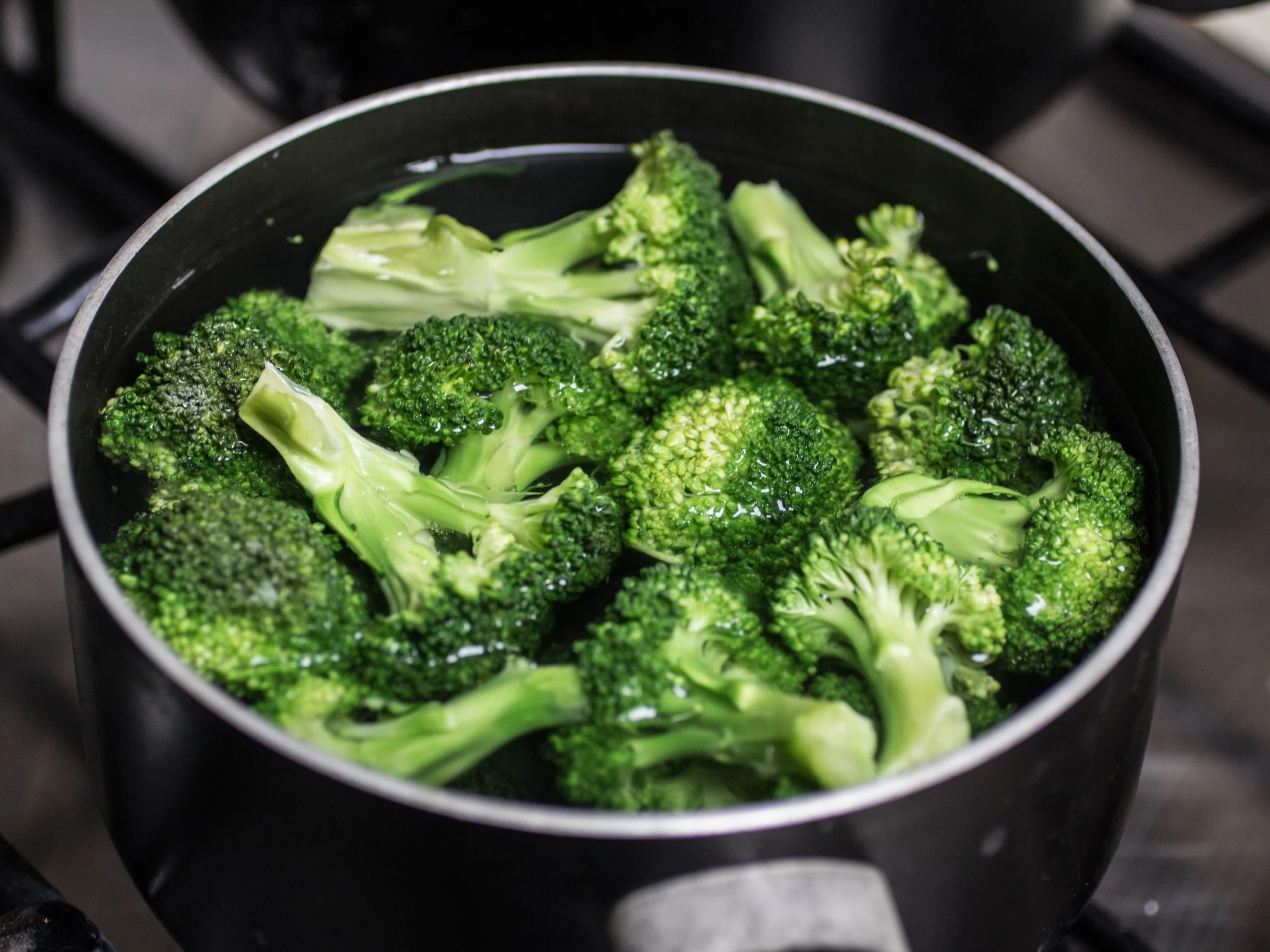
Written by Mindsmaking Medical Writer
Fact Checked by Mindsmaking Professionals
18th, November, 2025
Are you considering broccoli for your baby? Learn how to introduce broccoli safely, recommended daily servings, and healthy baby broccoli recipes.
Introducing vegetables like broccoli to babies is important for balanced nutrition and helping them develop good eating habits. As an incredible source of vitamins and minerals, broccoli for babies boosts immunity and supports nutrient absorption due to its antioxidant properties, which aid in development[2]. However, you might wonder if broccoli is healthy for your baby and have concerns about choking and allergies.
Recent studies show that exposing infants to a variety of vegetables early on increases their chances of accepting those foods later in life, including slightly bitter ones like broccoli.[5]
This article offers insights into the most common concerns you may have about introducing broccoli to your baby.
When Can I Introduce Broccoli to My Baby?
Experts advise focusing on developmental cues, such as the ability to sit up without assistance, good head control, good motor skills (like picking up objects and putting them in their mouth), and showing interest in food when it is offered to them. At this stage, broccoli can be a good choice for your baby's first food.[12]
When you notice these signs of readiness, you can introduce baby broccoli recipes, such as broccoli puree made from boiled broccoli and breastmilk or formula, as well as steamed broccoli.
The World Health Organization (WHO) recommends introducing solid foods around 6 months of age, in addition to continued breastfeeding and formula feeding, until the child is 2 years old. This is also known as either spoon-feeding or complementary feeding.
Introducing vegetables like broccoli early not only builds tolerance but also encourages your baby to have a varied diet that can last through childhood.[5]
How Do You Serve Broccoli?
There are multiple ways of serving broccoli for babies; it all depends on your child's age and your preferred cooking and feeding style.
Broccoli for a 6-month-old +
For babies starting solids at 6 months, a smooth broccoli puree made from steamed broccoli and breastmilk or formula works well, especially when combined with naturally sweet vegetables like carrots and sweet potatoes. As your baby becomes more comfortable with solids, you can try baby-led weaning by offering broccoli in different textures to encourage self-feeding skills.
Mindsmaking
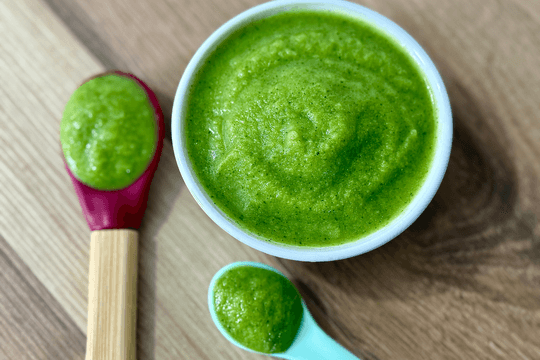
To serve broccoli to a 6-month-old, steam the florets until they are very soft, so you can easily mash them with your fingers. Offer large, tender florets about the size of your baby’s fist so they can hold and gnaw on them safely.You can also finely chop the steamed broccoli into small pieces and offer it on a preloaded spoon for practice. Avoid adding salt, butter, or other seasonings, and always supervise your baby while they eat to ensure safety.
Mindsmaking
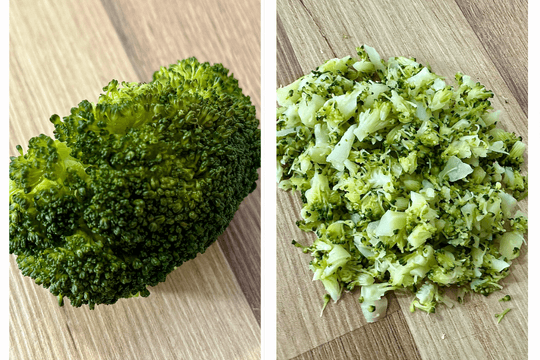
Read This Next
No posts available
Broccoli for a 9-month-old +
Babies from 9 months onward can be given well-cooked broccoli, cut into little but grabbable bite-sized pieces, to avoid choking while encouraging baby-led weaning. According to a study published in the National Library of Medicine, this gives babies the chance to explore self-feeding and develop essential motor skills, such as pincer grasps and hand-mouth coordination.[3]
Mindsmaking
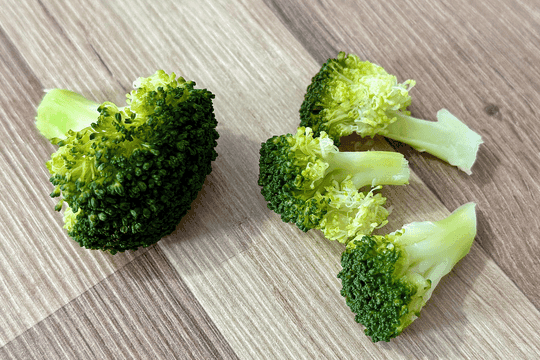
Broccoli for a 12-month-old +
At 12 months, babies develop stronger chewing skills and can handle a wider range of textures. You can serve steamed broccoli in small, bite-sized pieces or offer slightly firmer florets for them to practice biting and chewing. For toddlers following baby-led weaning, offering larger pieces of broccoli they can hold encourages independence at mealtimes.[3]
You can also mix chopped broccoli into toddler-friendly meals, such as pasta (Salmon Broccoli), rice, omelets, or casseroles. Broccoli remains a great source of important nutrients, including fiber, vitamin C, and antioxidants, which support your child’s growth and a strong immune system. Avoid adding too much salt or heavy seasonings, and continue to supervise your toddler during meals to ensure they eat safely.
Studies show that the steaming method for cooking broccoli results in no significant loss of nutrients compared to other methods, such as boiling and stir-frying.[11] That is why the steaming method of cooking broccoli is recommended, as it preserves vital nutrients and softens the food's texture, making it easier for your baby to absorb and digest the nutrients.
Mindsmaking
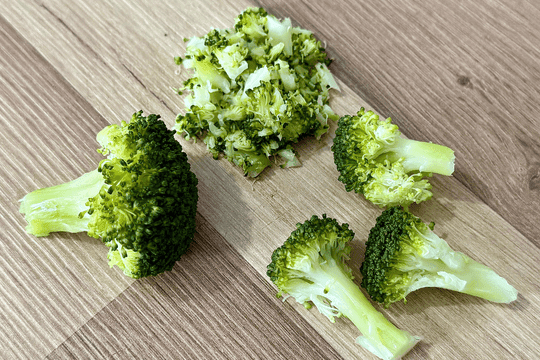
Is Broccoli Healthy for Babies?
Yes! Broccoli is highly nutritious and good for babies. Broccoli is rich in fibre, essential minerals like calcium and iron, and vitamins like Vitamin C, Vitamin B, and Vitamin K. These nutrients help boost the immune system, support iron absorption, aid in bone development and proper blood clotting, and promote digestion.
Research shows that many vegetables, like broccoli, contain antioxidants that help reduce inflammation and oxidative stress in the body.[2] When constantly introduced to babies, it can boost their immune system and help protect them from chronic infections and diseases later in life.
Because of its high fibre content, broccoli can also support digestion and promote a healthy gut. Studies have also found that fibre-rich foods, such as steamed broccoli, support the development of a healthy gut microbiota, which can positively influence long-term immune health.[7]
Mindsmaking
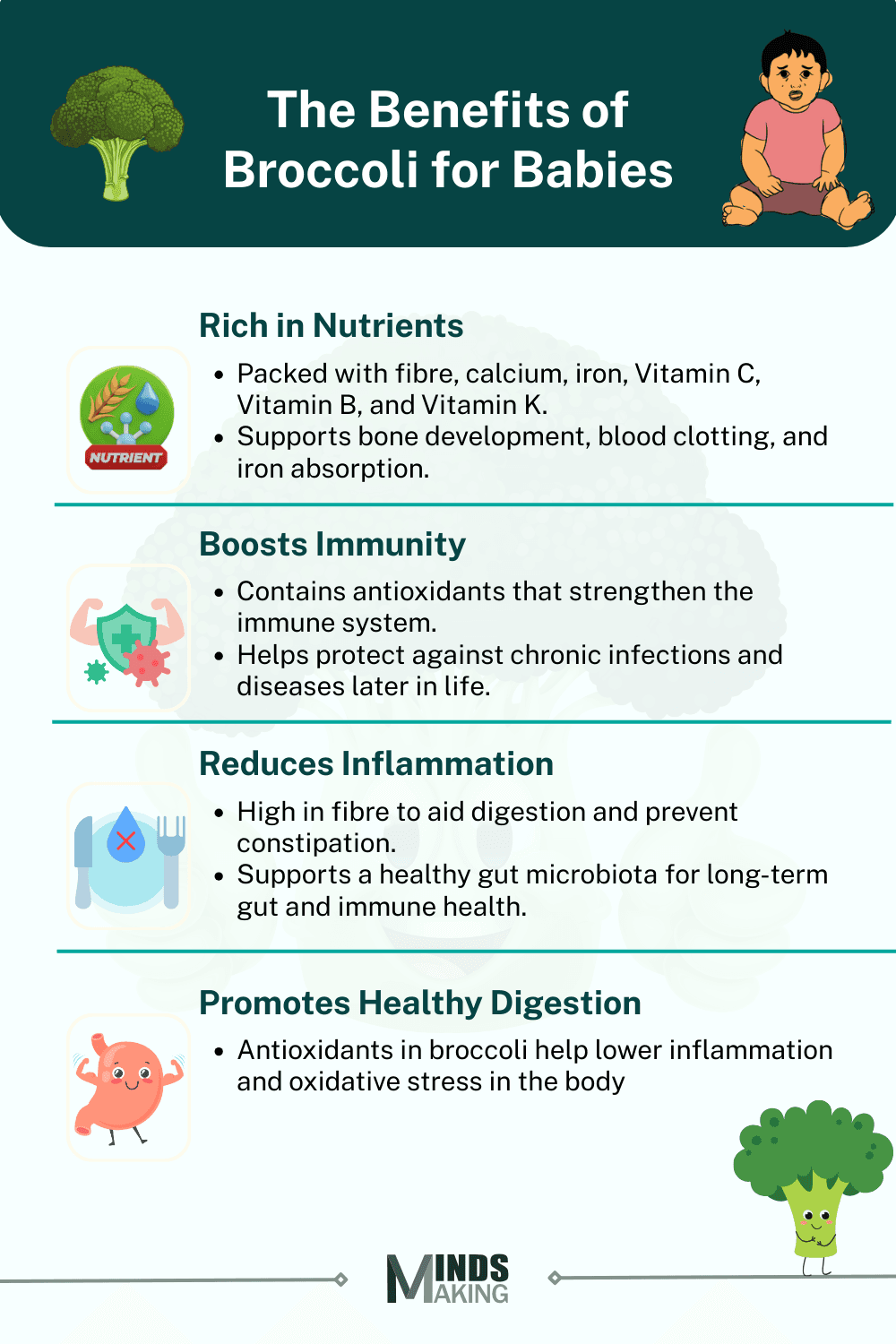
Can Babies be Allergic to Broccoli?
Developing an allergy to broccoli or other cruciferous vegetables, such as cauliflower, Brussels sprouts, and cabbage, is rare, but it is not impossible. According to a study published in the National Library of Medicine, an allergy to cruciferous vegetables, such as broccoli, is possible. Evidence shows that skin patch tests were conducted on a patient who experienced swelling in the eyes and mouth after eating boiled broccoli.[8] Although a broccoli allergy is significantly less common than allergies to milk, eggs, or nuts.
Some signs of an allergic reaction include hives, itchy and red skin, a swollen face, difficulty breathing, and a swollen throat, which can sometimes lead to anaphylaxis.[9] Although it's rare with a broccoli allergy, concerning symptoms of anaphylaxis, such as a swollen throat and difficulty breathing, require immediate medical attention. When you notice these signs in your baby, it's advised to go to the emergency room immediately.
It is important to know that worrying about an allergic reaction shouldn't stop you from introducing allergenic foods to your child. Studies show that introducing allergenic foods to high-risk infants as early as 4 to 6 months old can help prevent them from becoming allergic.
It is recommended to introduce them one at a time and observe your baby for any signs of an allergic reaction. However, this doesn't apply to babies who have been tested for such allergies and are confirmed to be allergic.
How Often Can I Give Broccoli to My Baby?
While broccoli is incredibly healthy and nutrient-rich, offering it too frequently to your baby may cause digestive discomfort due to its high fiber and sulfur compounds, and increase their chances of cardiovascular problems.[13] Instead, you can give your baby broccoli two to three times per week as part of a varied and balanced diet consisting of other foods and vegetables.
A Study notes that rotating vegetables helps prevent overexposure to certain plant compounds and supports the development of a well-rounded gut microbiota. Mixing broccoli with other baby vegetable purees can help prevent digestive discomfort in your baby.
Dietitians emphasize the importance of variety in vegetables to promote a broad range of nutrient intake. To maintain a balance, you can rotate broccoli with other nutrient-dense vegetables such as carrots, sweet potatoes, and zucchini. Watch for signs of reactions, such as gasiness or bloating, especially when first introducing broccoli.
Is Broccoli a Choking Hazard to Babies?
When cooked and served improperly to babies, broccoli can be a choking hazard. Raw and undercooked broccoli can be too hard for babies to chew and eat with their teeth and gums due to its firm and fibrous stalks and florets, which increases their risk of choking.
To ensure safety, always steam broccoli until it's soft enough to squish between your fingers. For younger infants under 7 months, you can opt for mashed broccoli or broccoli puree, which is the safest form. While older babies practising baby-led weaning with finger foods can be given soft but large pieces of steamed broccoli with long grabable stalks so the baby can grip and gnaw safely, reducing the risk of gagging or choking.
Centre for Disease and Control (CDC) recommends that you cook and prepare foods to the right shape, size, and texture for your child's development, always feed your child sitting up, avoid small, chewy, or hard foods that are difficult to chew and swallow, and remember to pay close attention and never leave them unattended to avoid the risk of choking.
Was this article helpful?
How many stars are you giving this article?
Leave a comment
Your email address will not be published.